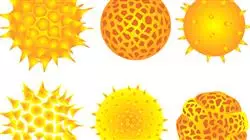University certificate
The world's largest faculty of medicine”
Introduction to the Program
Include in your medical practice the lastest diagnostic techniques in allergology and become one of the most in-demand professionals of today”

Allergology has seen how, in recent years, the number of people affected by the different forms of manifestation of the disease has increased notably. In the last two decades, this increasing trend has been particularly noticeable among children. And yet, very few countries have specialized services in this medical field.
This prevalence has led to allergy being considered a major health problem: according to the WHO, hundreds of millions of people suffer from rhinitis, one of the most common allergy conditions, and at least 300 million suffer from asthma. In addition to these figures, there is an enormous variety of other common and new allergies that have become commonplace in the specialist's office.
This training program has been created with the aim of providing professionals with specific training in the field of allergology to equip them with the most up-to-date knowledge in diagnosis and intervention.
In this sense, the professional must be able to offer their patients a study of their disease in which the recognition of allergens is a priority in order to work towards a lifestyle that aims to avoid symptoms and, with them, the progression of the disease.
During this training, you will learn about new lines of research and practice in allergic disease with a special interest in areas such as asthma and diagnosis by inflammatory genotypes or measurements: induced sputum, flow cytometry, measurement of cytokines and interleukins.
A comprehensive refresher program that will also allow you to incorporate Big Data and telemedicine skills. Work routines that will provide you with a new spectrum of performance and permanent growth.
Get up-to-date in one of the most in-demand specialties, with 30-40% of the world's population affected by allergies"
This Postgraduate certificate in Diagnostic Techniques in Allergic Diseases offers you the characteristics of a high-level scientific, teaching, and technological course. These are some of its most notable features:
- The latest technology in online teaching software
- Highly visual teaching system, supported by graphic and schematic contents that are easy to assimilate and understand
- Practical cases presented by practising experts
State-of-the-art interactive video systems - Teaching supported by telepractice
- Continuous updating and recycling systems
- Autonomous learning: full compatibility with other occupations
- Practical exercises for self-evaluation and learning verification
- Support groups and educational synergies: questions to the expert, debate and knowledge
- Communication with the teacher and individual reflection work
- Content that is accessible from any fixed or portable device with an Internet connection
- Supplementary documentation databases are permanently available, even after the course
A complete review of the latest diagnostic techniques allowing you to apply them to your medical practice almost immediately”
Our teaching staff is composed of medical professionals and practising specialists. In this way, we ensure that we provide you with the training update we are aiming for. A multidisciplinary team of doctors trained and experienced in different environments, who will develop the theoretical knowledge in an efficient way, but, above all, will put at the service of the course the practical knowledge derived from their own experience: one of the differential qualities of this training.
This mastery of the subject is complemented by the effectiveness of the methodological design of this course in Diagnostic Techniques in Allergic Diseases. Developed by a multidisciplinary team of e-learning experts, it integrates the latest advances in educational technology. This way, you will be able to study with a range of comfortable and versatile multimedia tools that will give you the operability you need in your training.
The design of this program is based on Problem-Based Learning: an approach that conceives learning as a highly practical process. To achieve this remotely, we will use telepractice: with the help of an innovative interactive video system, and learning from an expert, you will be able to acquire the knowledge as if you were actually dealing with the scenario you are learning about. A concept that will allow you to integrate and fix learning in a more realistic and permanent way.
We offer you the latest developments in advanced allergology, helping you acquire knowledge of new ways of working and approaching patients"

Our innovative telepractice concept will give you the opportunity to learn through an immersive experience, which will provide you with a faster integration and a much more realistic view of the contents: “learning from an expert”
Why study at TECH?
TECH is the world’s largest online university. With an impressive catalog of more than 14,000 university programs available in 11 languages, it is positioned as a leader in employability, with a 99% job placement rate. In addition, it relies on an enormous faculty of more than 6,000 professors of the highest international renown.

Study at the world's largest online university and guarantee your professional success. The future starts at TECH”
The world’s best online university according to FORBES
The prestigious Forbes magazine, specialized in business and finance, has highlighted TECH as “the world's best online university” This is what they have recently stated in an article in their digital edition in which they echo the success story of this institution, “thanks to the academic offer it provides, the selection of its teaching staff, and an innovative learning method aimed at educating the professionals of the future”
A revolutionary study method, a cutting-edge faculty and a practical focus: the key to TECH's success.
The most complete study plans on the university scene
TECH offers the most complete study plans on the university scene, with syllabuses that cover fundamental concepts and, at the same time, the main scientific advances in their specific scientific areas. In addition, these programs are continuously being updated to guarantee students the academic vanguard and the most in-demand professional skills. In this way, the university's qualifications provide its graduates with a significant advantage to propel their careers to success.
TECH offers the most comprehensive and intensive study plans on the current university scene.
A world-class teaching staff
TECH's teaching staff is made up of more than 6,000 professors with the highest international recognition. Professors, researchers and top executives of multinational companies, including Isaiah Covington, performance coach of the Boston Celtics; Magda Romanska, principal investigator at Harvard MetaLAB; Ignacio Wistumba, chairman of the department of translational molecular pathology at MD Anderson Cancer Center; and D.W. Pine, creative director of TIME magazine, among others.
Internationally renowned experts, specialized in different branches of Health, Technology, Communication and Business, form part of the TECH faculty.
A unique learning method
TECH is the first university to use Relearning in all its programs. It is the best online learning methodology, accredited with international teaching quality certifications, provided by prestigious educational agencies. In addition, this disruptive educational model is complemented with the “Case Method”, thereby setting up a unique online teaching strategy. Innovative teaching resources are also implemented, including detailed videos, infographics and interactive summaries.
TECH combines Relearning and the Case Method in all its university programs to guarantee excellent theoretical and practical learning, studying whenever and wherever you want.
The world's largest online university
TECH is the world’s largest online university. We are the largest educational institution, with the best and widest online educational catalog, one hundred percent online and covering the vast majority of areas of knowledge. We offer a large selection of our own degrees and accredited online undergraduate and postgraduate degrees. In total, more than 14,000 university degrees, in eleven different languages, make us the largest educational largest in the world.
TECH has the world's most extensive catalog of academic and official programs, available in more than 11 languages.
Google Premier Partner
The American technology giant has awarded TECH the Google Google Premier Partner badge. This award, which is only available to 3% of the world's companies, highlights the efficient, flexible and tailored experience that this university provides to students. The recognition as a Google Premier Partner not only accredits the maximum rigor, performance and investment in TECH's digital infrastructures, but also places this university as one of the world's leading technology companies.
Google has positioned TECH in the top 3% of the world's most important technology companies by awarding it its Google Premier Partner badge.
The official online university of the NBA
TECH is the official online university of the NBA. Thanks to our agreement with the biggest league in basketball, we offer our students exclusive university programs, as well as a wide variety of educational resources focused on the business of the league and other areas of the sports industry. Each program is made up of a uniquely designed syllabus and features exceptional guest hosts: professionals with a distinguished sports background who will offer their expertise on the most relevant topics.
TECH has been selected by the NBA, the world's top basketball league, as its official online university.
The top-rated university by its students
Students have positioned TECH as the world's top-rated university on the main review websites, with a highest rating of 4.9 out of 5, obtained from more than 1,000 reviews. These results consolidate TECH as the benchmark university institution at an international level, reflecting the excellence and positive impact of its educational model.” reflecting the excellence and positive impact of its educational model.”
TECH is the world’s top-rated university by its students.
Leaders in employability
TECH has managed to become the leading university in employability. 99% of its students obtain jobs in the academic field they have studied, within one year of completing any of the university's programs. A similar number achieve immediate career enhancement. All this thanks to a study methodology that bases its effectiveness on the acquisition of practical skills, which are absolutely necessary for professional development.
99% of TECH graduates find a job within a year of completing their studies.
Postgraduate Certificate in Diagnostic Techniques in Allergic Diseases
If you work in the health care field, you are well aware of how crucial accurate diagnosis is for the effective treatment of any disease. In the case of allergic pathologies, a careful evaluation of symptoms is essential to identify the cause of allergic reactions and prevent future exposures. Therefore, if you wish to be updated in the diagnostic techniques of such conditions, do not miss the opportunity to enroll in this Postgraduate Certificate in Diagnostic Techniques in Allergic Diseases.
Time to update you in the diagnostic procedures for allergic pathologies.
This Postgraduate Certificate in Diagnostic Techniques in Allergic Diseases focuses on the most common diagnostic techniques used to evaluate traditional allergic diseases, such as allergic rhinitis, bronchial asthma or atopic dermatitis. Through master classes, case studies or practical situations, you will be immersed in an exciting academic journey condensed into 150 hours in which you will benefit from the experience of experts who have emerged as eminent in this area.







